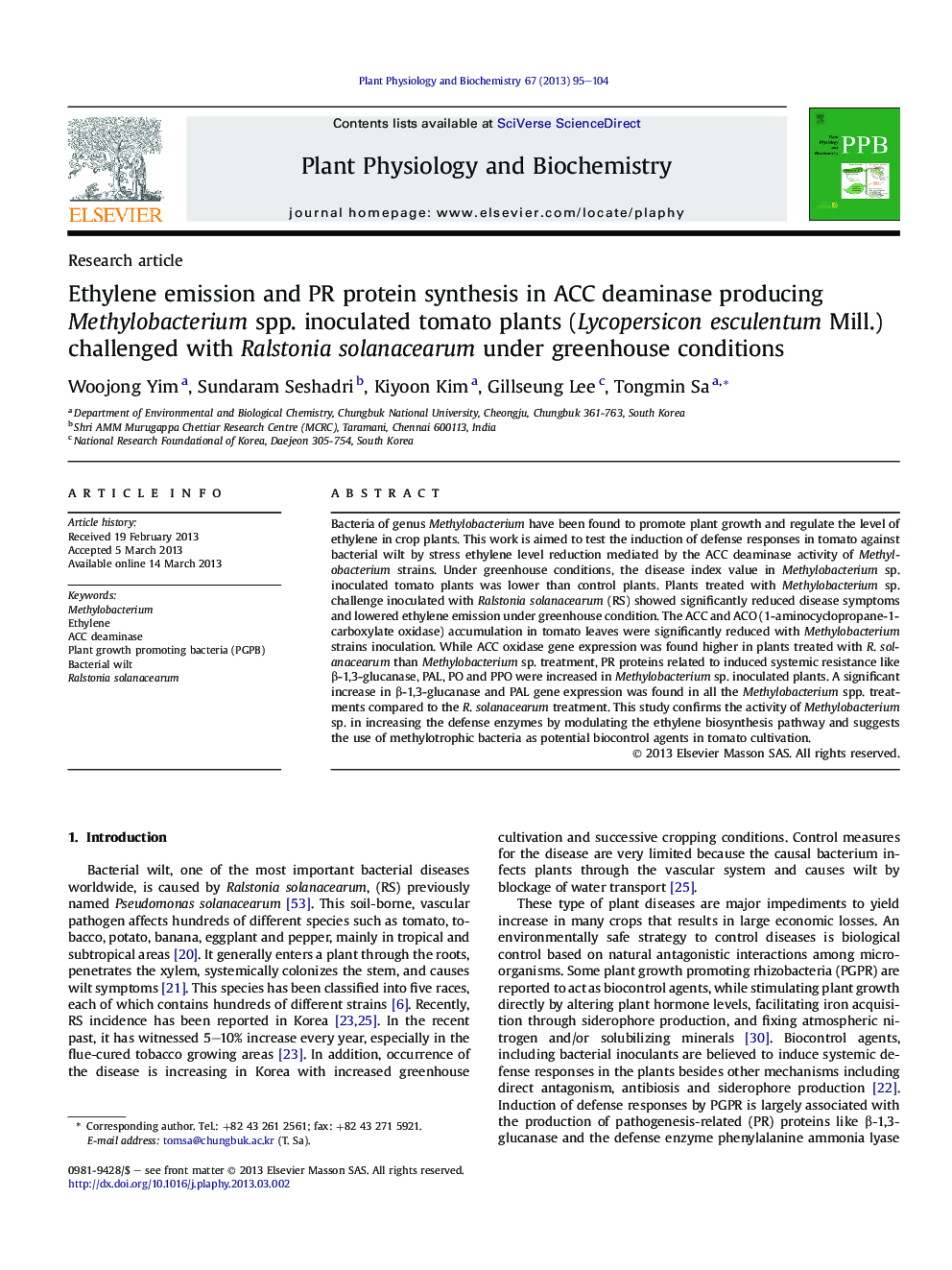| Article ID | Journal | Published Year | Pages | File Type |
|---|---|---|---|---|
| 2015985 | Plant Physiology and Biochemistry | 2013 | 10 Pages |
Abstract
Bacteria of genus Methylobacterium have been found to promote plant growth and regulate the level of ethylene in crop plants. This work is aimed to test the induction of defense responses in tomato against bacterial wilt by stress ethylene level reduction mediated by the ACC deaminase activity of Methylobacterium strains. Under greenhouse conditions, the disease index value in Methylobacterium sp. inoculated tomato plants was lower than control plants. Plants treated with Methylobacterium sp. challenge inoculated with Ralstonia solanacearum (RS) showed significantly reduced disease symptoms and lowered ethylene emission under greenhouse condition. The ACC and ACO (1-aminocyclopropane-1-carboxylate oxidase) accumulation in tomato leaves were significantly reduced with Methylobacterium strains inoculation. While ACC oxidase gene expression was found higher in plants treated with R. solanacearum than Methylobacterium sp. treatment, PR proteins related to induced systemic resistance like β-1,3-glucanase, PAL, PO and PPO were increased in Methylobacterium sp. inoculated plants. A significant increase in β-1,3-glucanase and PAL gene expression was found in all the Methylobacterium spp. treatments compared to the R. solanacearum treatment. This study confirms the activity of Methylobacterium sp. in increasing the defense enzymes by modulating the ethylene biosynthesis pathway and suggests the use of methylotrophic bacteria as potential biocontrol agents in tomato cultivation.
Keywords
Related Topics
Life Sciences
Agricultural and Biological Sciences
Plant Science
Authors
Woojong Yim, Sundaram Seshadri, Kiyoon Kim, Gillseung Lee, Tongmin Sa,
